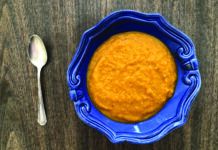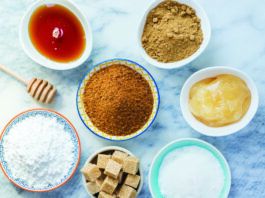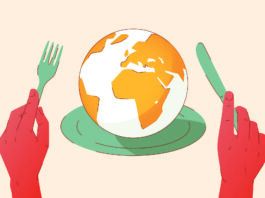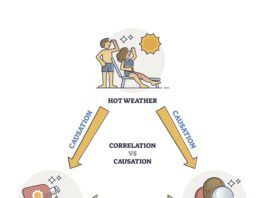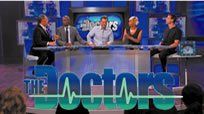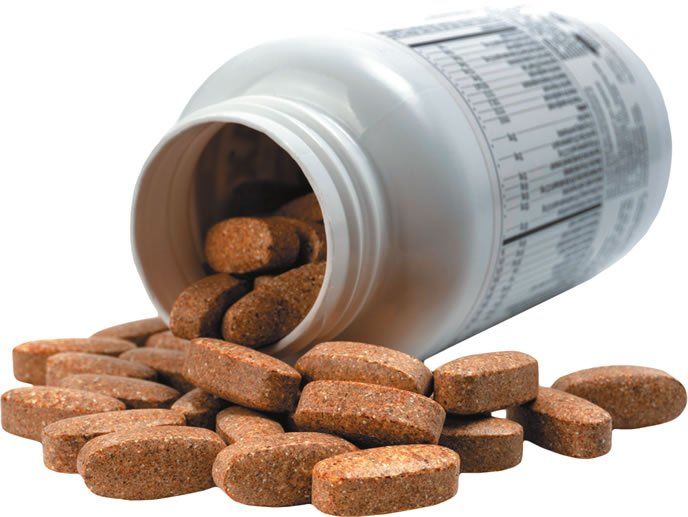What Are Whole Grains?
Whole grains or foods made from them contain the entire grain seed-all the parts in their original proportions, including the naturally occurring nutrients. According to the Dietary Guidelines for Americans, if the grain has been cracked, crushed or flaked, a food must retain the same relative proportions as they exist in the intact grain to be called a whole grain. This means that 100% of the original grain-all of the bran, germ and endosperm-must be present to qualify as a whole grain. Refined grains retain only the endosperm portion of the original seed.
Get Your Fiber Fix
Although whole grains are generally a good source of fiber, they are far from the only way to boost your fiber intake. Other high-fiber foods include:
Special Supplement: 10 Red Flags of Misleading Nutrition Claims
Nutrition is not a science of breakthroughs, explains Tufts professor Jeanne Goldberg, PhD, founder and director of the Friedman Schools Nutrition Communication Program, which trains professionals to explain research findings in ways that the public can understand. Nutrition research often moves the needle only a little bit at a time. Its evolution, not revolution, she says.
Special Supplement: TV Medical Shows: Scientific Static
When it comes to getting advice from doctors on TV, you might be just as well off consulting the fictional Marcus Welby, MD, or Dr. Kildare rather than the real physicians on popular talk shows. A new study published in the journal BMJ analyzed recommendations from 40 randomly selected episodes of each of the two highest-rated medical programs, The Dr. Oz Show and The Doctors. Overall, barely half the 160 recommendations could be supported by scientific evidence.
Behind The Numbers
What do those blood-pressure numbers mean? Blood pressure is typically recorded as two numbers, each measured in millimeters of mercury (mmHg). The numbers reflect how high the pressure pushes a column of mercury in a device called a sphygmomanometer (much as the mercury rises in a thermometer in response to heat).
New Research on High Blood Pressure: What You Need to Know
About one in three American adults, some 67 million people, have high blood pressure, one of the most dangerous risk factors for stroke. If youre age 65 years or older, the odds are even greater that you have hypertension: 64% of men and 69% of women ages 65 and up have high blood pressure, according to the US Centers for Disease Control and Prevention.
Finding New Health Benefits for Vitamin K
Vitamin K, once thought important primarily for blood clotting, may have a much wider array of health benefits. One recent Spanish study reported that people with the highest dietary intake of vitamin K were at significantly lower risk of mortality from cardiovascular disease, cancer and all causes. And if youre not already consuming plenty of vitamin K-found in dark leafy greens, broccoli, Brussels sprouts and other vegetables (see box)-its not too late to start: The study also found that people who increased their vitamin K intake were at lower mortality risk.
Safe Upper Levels for Vitamins and Minerals: What You Need to Know
If a little is good, most Americans are accustomed to thinking, more must be better and a lot must be better still. When it comes to vitamins and minerals, however, it is possible to get too much of a good thing-especially if some of your nutrients are coming from pills instead of food.Remember that most of your vitamin and mineral needs can be safely met by a thoughtful diet, cautions Irwin H. Rosenberg, MD, editor of the Tufts Health & Nutrition Letter. The use of so-called dietary supplements will always be associated with some degree of risk.
5 Ways Eating Right Makes a Difference for Older Adults
After youve reached a certain age, does eating right really matter? As a reader of this newsletter, you might take it for granted that the answer is, Yes, of course!-after all, you subscribe to a publication whose tagline is Living healthier longer. But exactly how does nutrition affect the health of older individuals?
Will You Be Part of Salts Global Reach?
If youre worried about getting too much sodium from salt in your diet, a new globe-spanning study reports you should have company among 99% of the worlds population. Daily sodium consumption in the 66 countries studied averaged 3,950 milligrams-nearly twice the maximum recommended by the World Health Organization (WHO). That excess sodium intake, researchers estimated, contributes to about 1.65 million deaths a year worldwide from cardiovascular causes.




